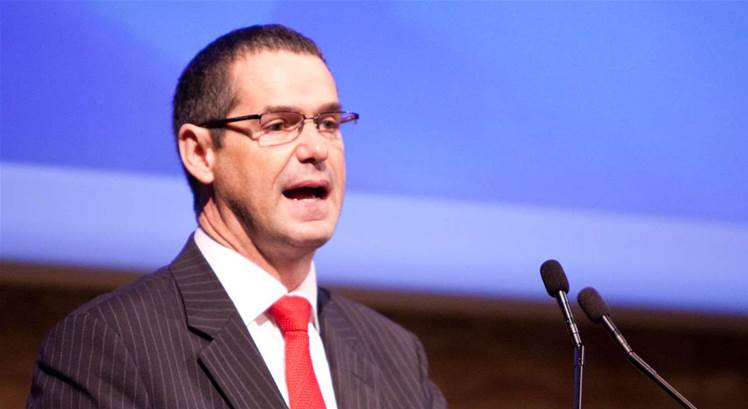Communications Minister Stephen Conroy last night refused to back away from his party's controversial internet filtering regime, saying it was too early to speculate about the policy's future.
Appearing on the ABC's Q&A program, Conroy responded to recent criticism that the Government no longer had the numbers in the Senate to see its controversial legislation passed - should the draft laws ever be introduced to parliament.
"When people say it won't be passed, the legislation hasn't been drafted and the review [of Refused Classification guidelines announced before the election] hasn't taken place yet," Conroy said.
"You don't - simply because you get a lot of criticism - simply run away from that policy."
Conroy faced much the same criticisms on the program that he had faced previously, including technical feasibility of the proposal and the cancellation of the Coalition's PC-based filter scheme.
"It will not work," shadow minister for innovation Sophie Mirabella said.
"That's why there is such widespread opposition to it."
Australian Sex Party president Fiona Patten suggested that some of the resources currently allocated to the ISP filter be put towards attempts to cut off child pornography at its source rather than simply trying to block access to it.
And independent MP Rob Oakeshott said he "looked forward" to seeing the filter legislation when it was introduced.
"Let's look at it in detail [then]," Oakeshott said.

Parental supervision
"I think personal responsibility is a big factor in what we're all trying to achieve with this one," Oakeshott told viewers of the program.
"I think the most valuable thing that can be done in every household is the 'shoulder surfing' [by parents watching their kids' internet use]."
Oakeshott suggested that was possible by placing the household computer "in an open space", something Conroy believed was outdated.
"An open space doesn't exist when an iPad [or] iPhone exists," Conroy said.
"This argument that it should be put in the family room or the common room is now technologically bypassed."
Online anonymity
Conroy also weighed into the online privacy debate, following yesterday's unmasking by The Australian newspaper of an "anonymous" political blogger who was a public servant.
"I thought it was really interesting to see News Ltd outing somebody for anonymity when they ran a campaign to protect anonymity about 12 months ago," Conroy said, referring to a backlash against the South Australian Attorney-General Michael Atkinson over moves to outlaw anonymous comments made on blogs during that state's election.
"When the South Australian Attorney-General tried to say that people had to identify themselves on a blog during the SA election campaign, News Ltd ran a campaign saying this was censorship," Conroy said.
Conroy believed Australia needed to "face up to a debate around the tort of privacy".
"We need to have some bounds between the right to know and the tort of privacy," he said.



.png&h=140&w=231&c=1&s=0)







 iTnews Benchmark Awards 2026
iTnews Benchmark Awards 2026
 iTnews Executive Retreat - Security Leaders Edition
iTnews Executive Retreat - Security Leaders Edition
 iTnews Cloud Covered Breakfast Summit
iTnews Cloud Covered Breakfast Summit
 The 2026 iAwards
The 2026 iAwards











_(1).jpg&h=140&w=231&c=1&s=0)



